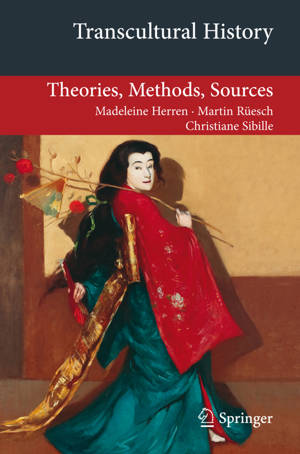
Bedankt voor het vertrouwen het afgelopen jaar! Om jou te bedanken bieden we GRATIS verzending (in België) aan op alles gedurende de hele maand januari.
- Afhalen na 1 uur in een winkel met voorraad
- In januari gratis thuislevering in België
- Ruim aanbod met 7 miljoen producten
Bedankt voor het vertrouwen het afgelopen jaar! Om jou te bedanken bieden we GRATIS verzending (in België) aan op alles gedurende de hele maand januari.
- Afhalen na 1 uur in een winkel met voorraad
- In januari gratis thuislevering in België
- Ruim aanbod met 7 miljoen producten
Zoeken
Transcultural History
Theories, Methods, Sources
Madeleine Herren, Martin Rüesch, Christiane Sibille
€ 167,95
+ 335 punten
Omschrijving
For the 21st century, the often-quoted citation 'past is prologue' reads the other way around: The global present lacks a historical narrative for the global past. Focussing on a transcultural history, this book questions the territoriality of historical concepts and offers a narrative, which aims to overcome cultural essentialism by focussing on crossing borders of all kinds. Transcultural History reflects critically on the way history is constructed, asking who formed history in the past and who succeeded in shaping what we call the master narrative. Although trained European historians, the authors aim to present a useful approach to global history, showing first of all how a Eurocentric but universal historiography removed or essentialised certain topics in Asian history. As an empirical discipline, history is based on source material, analysed according to rules resulting from a strong methodological background. This book accesses the global past after World War I, looking at the well known stage of the Paris Peace Conferences, observing the multiplication of new borders and the variety of transgressing institutions, concepts, actors, men and women inventing themselves as global subjects, but sharing a bitter experience with almost all local societies at this time, namely the awareness of having relatives buried in far distant places due to globalised wars.
Specificaties
Betrokkenen
- Auteur(s):
- Uitgeverij:
Inhoud
- Aantal bladzijden:
- 174
- Taal:
- Engels
- Reeks:
Eigenschappen
- Productcode (EAN):
- 9783642191954
- Verschijningsdatum:
- 22/06/2012
- Uitvoering:
- Paperback
- Formaat:
- Trade paperback (VS)
- Afmetingen:
- 156 mm x 234 mm
- Gewicht:
- 272 g

Alleen bij Standaard Boekhandel
+ 335 punten op je klantenkaart van Standaard Boekhandel
Beoordelingen
We publiceren alleen reviews die voldoen aan de voorwaarden voor reviews. Bekijk onze voorwaarden voor reviews.









